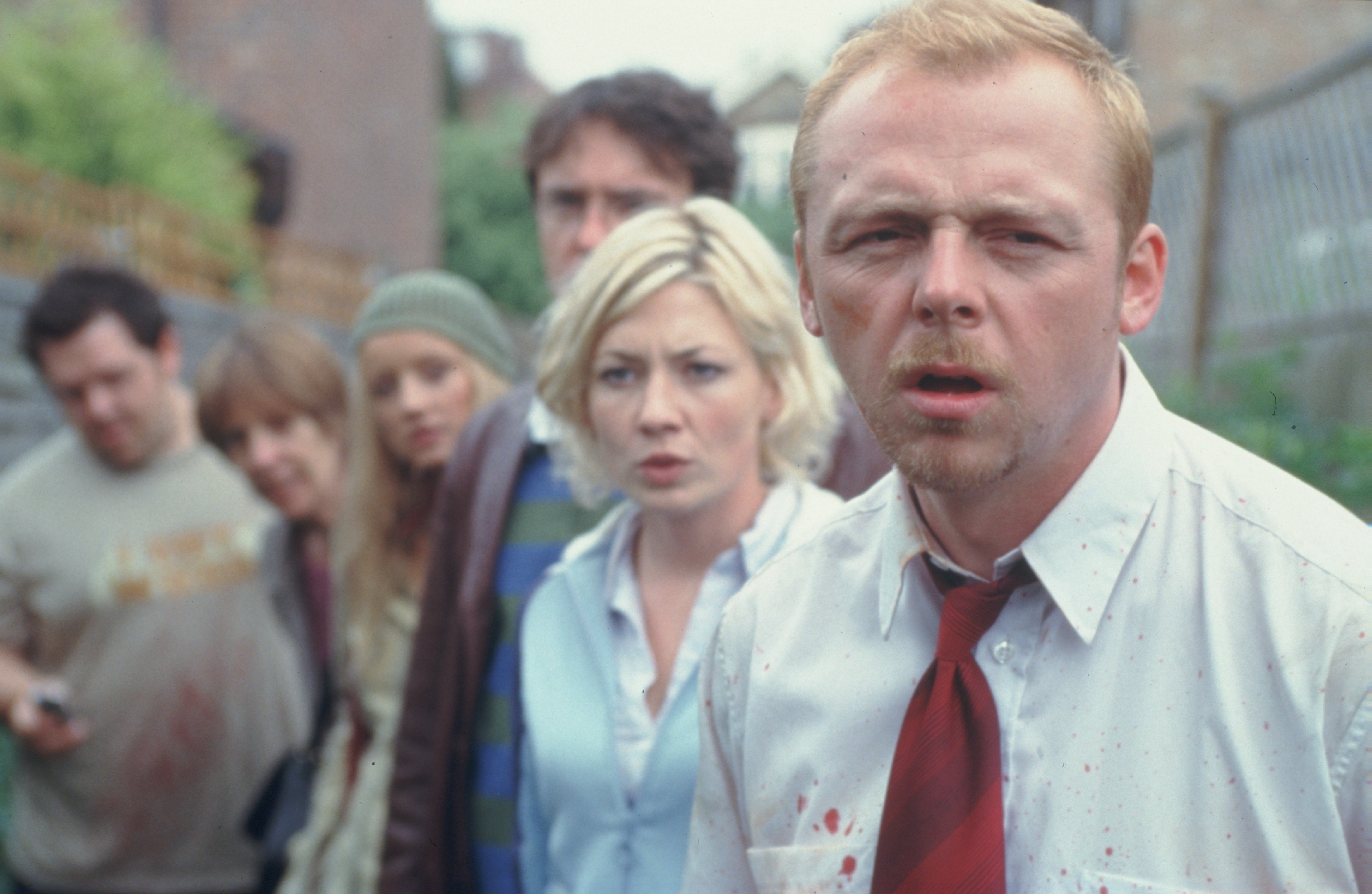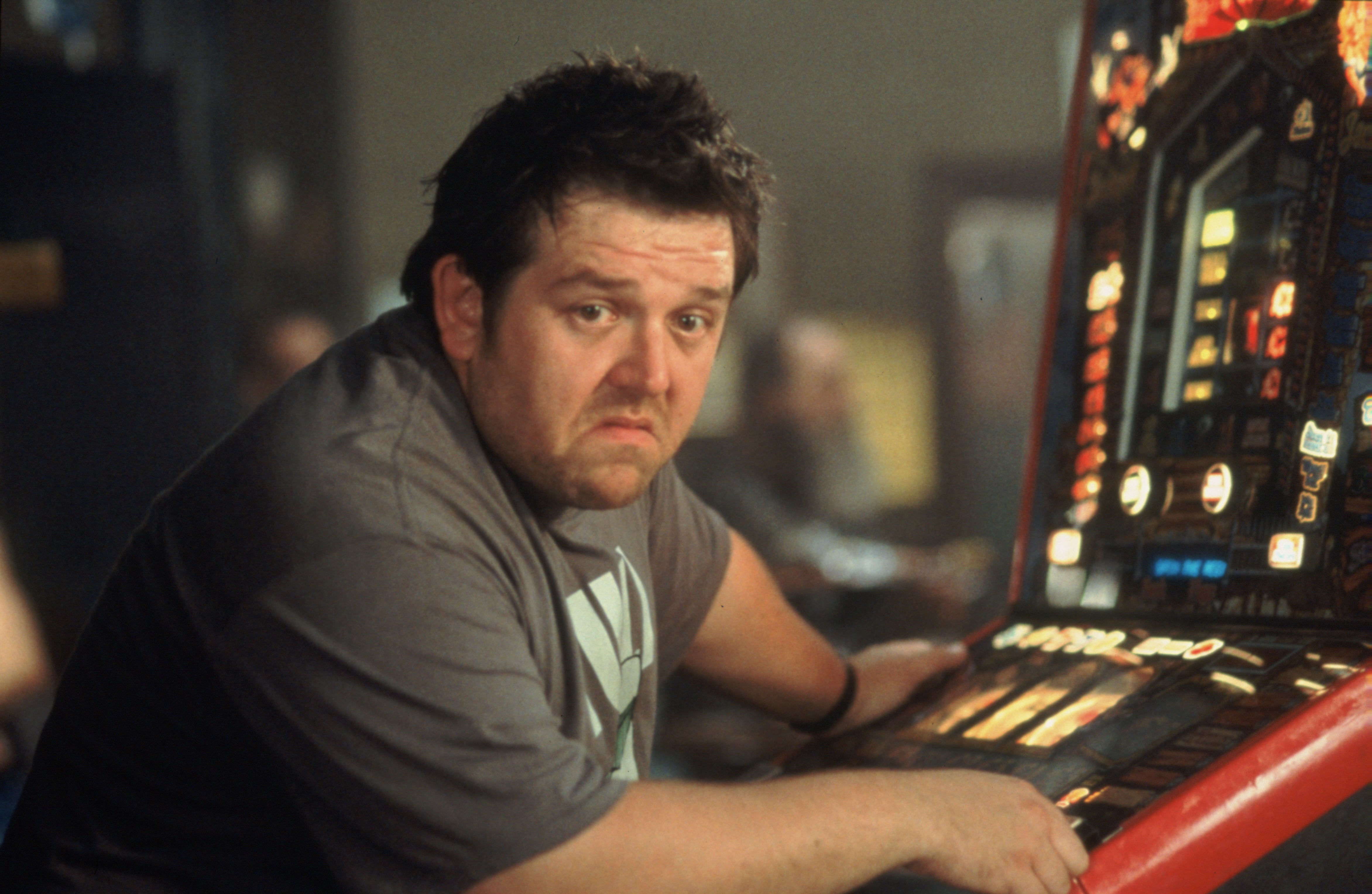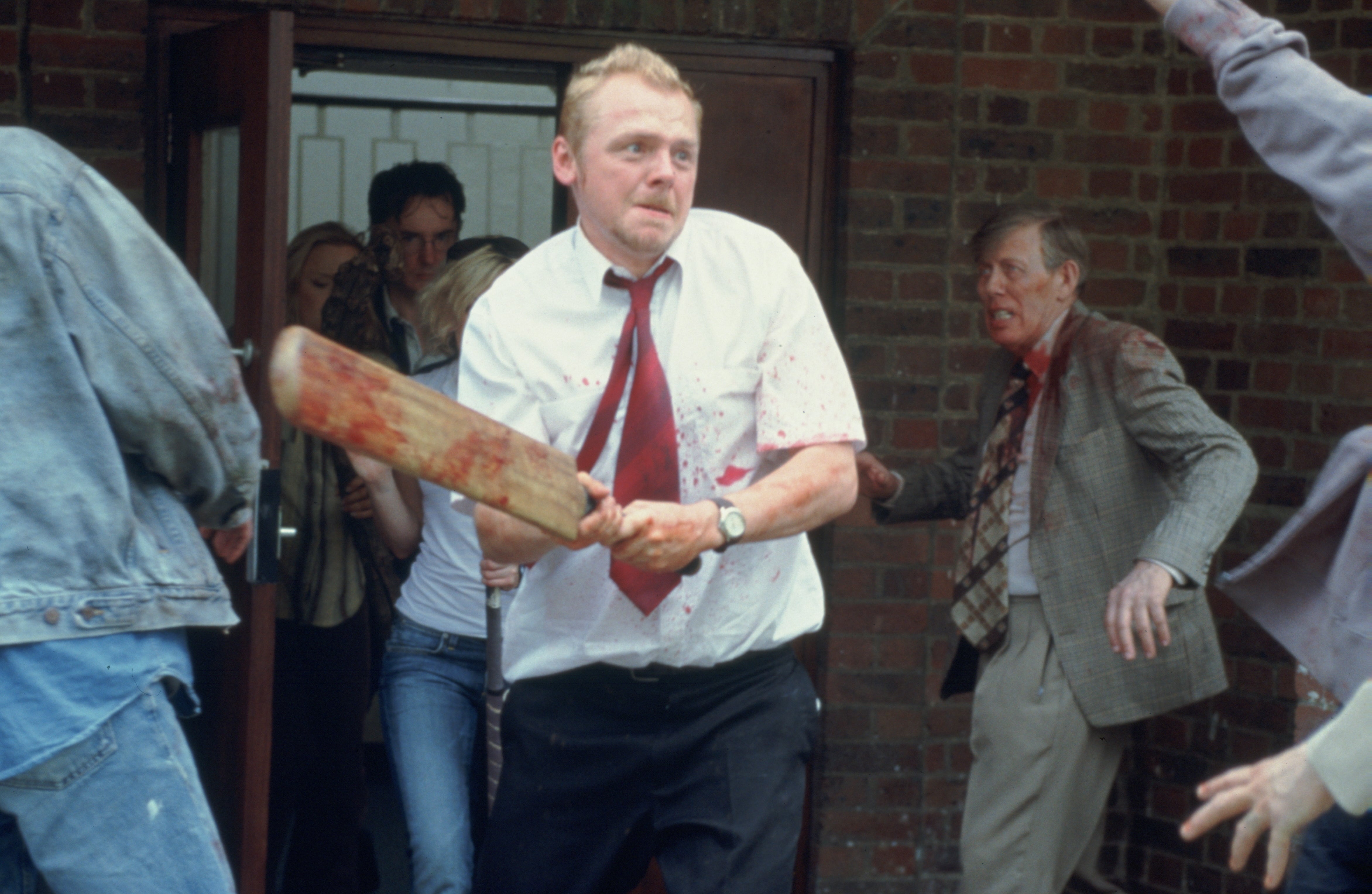How Shaun of the Dead overcame behind-the-scenes chaos to redefine horror comedy
Edgar Wright’s rom-zom-com is one of British cinema’s great success stories – but when you know the real story behind it, you can understand how miraculous it was that it ever came out at all, writes Geoffrey Macnab

Picture the scene. A man ambles to his local north London corner shop to purchase a Cornetto ice cream for his hungover flatmate. As he crosses the road, we see cars with their windows smashed in; rubbish strewn over the pavement; cadavers scattered in front gardens. Ghoulish figures shuffle down the street behind him.
Placing his loose change on the counter, the man – Shaun, played by Simon Pegg – doesn’t notice any of this. After all, he has far bigger problems to worry about than zombie apocalypses. His girlfriend Liz (Kate Ashfield) has just left him.
Shot Scorsese-style, in a single bravura take, the scene, which occurs early on in Edgar Wright’s 2004 movie Shaun of the Dead, is funny, creepy and disorienting, but also reassuringly humdrum. Pegg plays it in deadpan fashion reminiscent of old silent comedians like Buster Keaton, who seldom betrayed any emotion even when houses were falling down over their heads.
Some of the humour is borrowed directly from US horror maestro George Romero’s 1978 classic Dawn of the Dead, which largely took place in a shopping mall and was full of satirical sideswipes about American consumerism.
Like their forebear Romero, Wright and Pegg, who wrote the screenplay together, much preferred slow-moving zombies – not the fast and feral creatures made popular by 28 Days Later in 2002. “Death is not an energy drink,” Pegg told one journalist, who asked him why the living corpses couldn’t speed up a bit.
This, though, is a very British journey into the macabre. The original title was “Tea Time of the Dead” (a spin on Romero’s Night of the Living Dead, Dawn, and Day of the Dead). It was easy to understand the wariness among industry observers in April 2003 when they heard that the project was finally going into production. The director had sold his film to nonplussed trade journalists as “a naturalistic comedy about the zombified existence of late twentysomethings, crossbred with a full-scale zombie invasion”.
That was a lot to devour. The director later elaborated on the Reel Feedback podcast that Shaun had been conceived in the manner of Mike Leigh’s Life is Sweet (1990). Its heroes Shaun and Ed (Nick Frost) aren’t trying to save the world. They’re ordinary Londoners who, when clear and present danger looms, immediately look for refuge in their favourite pub, the Winchester, where they can have a “nice cold pint and wait for all this to blow over”.

“Mostly in the American films, and even in 28 Days Later, it revolves around the military, or scientists, or people who can do something,” the director said. “What if it’s the least important people? What if it is two guys on the couch who are hungover and missed the news?”
Wright’s admirers were ready to cut him some slack. He already had a fervent following in the UK thanks to cult TV sitcom Spaced, which also starred Pegg alongside Jessica Hynes. Nonetheless, that was no guarantee that he could make a successful movie. His debut feature A Fistful of Fingers (1995), a spoof western made in Somerset when he was barely 20, had received one or two encouraging reviews without making any impact at all at the box office. One critic summed up its ingredients as being “budget £10,000, cardboard horses and a handful of sixth-formers”.
To certain foreign distributors, Shaun of the Dead didn’t seem a commercial proposition at all. It was far too quirky and sardonic. Senior managers at UIP, the company handling its international rollout, refused even to release it in some territories. The film had first been announced at the Cannes festival in 2002, when it was on the development slate of FilmFour (Channel 4’s then standalone film arm).
“Edgar is that rare director who can create a singular world, so you know you’re going to be taken somewhere bold,” said FilmFour exec James Wilson (who went on to produce last year’s Oscar winner The Zone of Interest) about the visionary young auteur from the West Country.
A few weeks later, though, FilmFour went bust, and the funding for Shaun promptly vanished. There were many reasons why other industry executives were initially reluctant to bite on Shaun of the Dead. As Wright himself acknowledged in You’ve Got Red on You (2021), Clark Collis’s exhaustively researched book about the making of the film, British horror movies “died out” in the 1990s. The glory years of Hammer were a long way in the past.

There had never really been a tradition of British zombie films anyway – and Wright himself was doubtful that the market was big enough for two of them at once. When he and Pegg were working on the first draft of the Shaun of the Dead screenplay, they were utterly dismayed to discover that Trainspotting director Danny Boyle and author Alex Garland were already hard at work on their own London-set story about the undead, 28 Days Later.
“I was like, “Argh, no! Oh, we’re f***ed!” Wright admitted to Collis.
Omens on the comedy front weren’t any brighter. In February 2004, only two months before Shaun of the Dead was due to hit cinemas, The Sex Lives of the Potato Men, about the amorous misadventures of a group of vegetable delivery guys, had been fried to a crisp by indignant critics. “Nauseous”, “inept”, “smut for morons”, “witless and repulsive”, “useless”, and “one of the worst films of all time” were some of the nicer remarks reviewers made about the ill-fated film, which, like Shaun, starred several popular TV comedians.
After FilmFour’s demise, BBC Films tried to take over Shaun of the Dead. As Collis noted, its executives eventually decided that, as a licence-fee-funded corporation with a public service remit, the Beeb was “unable to fully finance a £4m movie about people fighting zombies in a pub”.
The film was ultimately made by Working Title, the Universal-backed UK company behind Four Weddings and a Funeral, Notting Hill, and the Bridget Jones franchise. It proved a happy marriage. Working Title bosses Tim Bevan and Eric Fellner largely left Wright and his producer Nira Park to their own devices – but gave them the full benefit of their company’s formidable marketing expertise.

Collis’s 400-page book about the making of the film portrays Shaun of the Dead as a troubled and turbulent production roiled by the tensions between Wright and his veteran American cinematographer David M Dunlap. There were constant worries about the money running out. The zombie extras didn’t enjoy the stifling heat at Ealing Studios, and exasperated the makeup artists by “copping off” with each other, thereby ruining their carefully applied layers of blood and prosthetics. The young British director was desperate for Romero’s approval, which he eventually received, and was terrified that his masterwork might end up being released straight to video.
In truth, long before its release, most of the British film industry had already cottoned on to the fact that the film was going to be a hit. It may have been made on a small budget, but Wright’s rom-zom-com had something for everyone. It tapped into the fad for 1990s laddishness with its scenes of Frost and Pegg playing video games, cracking crass jokes and downing pints at the Winchester while eating packets of Hog Lumps (the film’s very own answer to Pork Scratchings). All those impalings and decapitations were gory enough to keep the horror aficionados happy.
At the same time, the story had some of the same sweetness of spirit found in Working Title’s romcoms of the era. Pegg’s character even seemed like a slightly grungier, more acerbic version of the foppish types played by Hugh Grant in Notting Hill and Four Weddings. Ashfield, as the girlfriend who dumps him, was his very own down-at-heel Julia Roberts.

Strangely, this was a feelgood family movie, too. Shaun may have ended up killing his mother (Penelope Wilton) after she became a zombie, but not before buying her flowers.
The musical references alone seemed designed to appeal to multiple constituencies. The soundtrack includes The Smiths, The Specials, a few blasts of Queen. There are also stirring scenes of Frost and Pegg trying to defend themselves against the zombies with their collection of Sade and Dire Straits vinyl records wielded as frisbee-like weapons. Meanwhile, the supporting cast was so full of familiar or soon-to-become-familiar faces (everybody from Coldplay’s Chris Martin to Little Britain’s Matt Lucas) that identifying them all became like playing a cinematic version of Where’s Wally.
Fans watched the film again and again; to many, this was the funniest horror comedy ever made. It may have been conceived in the era of mad cow disease, but inevitably, it never seemed more topical than during the Covid pandemic. It even became part of the curriculum for A-level film studies courses. Eli Roth and Quentin Tarantino gave the film their blessing, and so, according to Collis, did the playwright Tom Stoppard.
Now, with Shaun of the Dead about to be re-released, zombie fans are on the march again, stumbling toward their local cinemas to enjoy yet another mouthful of a film that still refuses to die.
‘Shaun of the Dead 20th anniversary’ is in cinemas from 27 September






Join our commenting forum
Join thought-provoking conversations, follow other Independent readers and see their replies
Comments